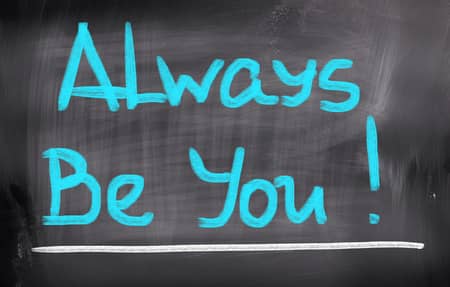Do you stand out in your office? My guess is that you do.
How do you feel about it?
Do you embrace your difference? Or do you try to compensate for your difference by being accommodating?
I ask these questions because how you win is as important as winning. Winning on your terms, while remaining true to yourself, is as important as the win itself. Last August Claudine Rankine wrote a New York Times Magazine article titled The Meaning of Serena Williams.
Ms. Rankine began the article by stating a fundamental belief that I have held all my life. As an African American, I believe I have to work harder, and be smarter and better than others before I am recognized for my excellence.
In recent years, I’ve battled with that belief because it isn’t always helpful. It isn’t helpful because the subtext of that belief is that this excellence is always accompanied with good manners and forgiveness, even in the face of racial or sexist slights or attacks.

The picture Ms. Rankine drew in the article of Serena Williams, an amazing woman who came into her own on the court, had a significant impact on me. Serena doesn’t behave the way an excellent woman of color is “supposed” to behave. Rather, Serena calls it like it is. She reveals the full extent of her joy, humor, and rage. She refuses to hide her humanity from her critics or her fans.
She demonstrates that to accept and display who you are is the greatest strength you can have.
Do you know why?
You are clear about what makes you different.
When you understand and are comfortable with being different you bring your full creative genius and valuable perspective to your everyday work. It isn’t women and people of color who benefit from diversity; it’s the companies that employ them.
Organizations that don’t have diversity of thought and experiences will ultimately become static. What you offer by being different is key to your organization’s future innovations. What Serena has brought to women’s tennis has forever changed the game.
Be a game changer.
You can act with full integrity.
Being able to have difficult conversations in difficult situations is an integral part of building a successful career. If you don’t show up as your true self every day, taking a stand when you need to becomes almost impossible. And, your stand is valuable — even (and maybe especially) when it’s not in sync with the majority of people in your organization.
My clients’ ability to articulate their positions based on who they are and how they think differently has made the biggest differences in their careers. It propels them forward when they’re faced with challenges. It also unveils their ability to be truly successful in their organizations. They don’t have to guess if it is the right place for them.
Lastly, when you are inauthentic, you actually battle your own perception of their racism or sexism.
Do you reveal “the real you” to your company, or are you too busy trying to make everyone comfortable with who you are? That constant struggle, whether conscious or unconscious, is draining and takes a toll on your body and psyche. Let them battle with who you are if they choose to, but stop struggling to bridge the gap of who you think, they think you are.
Let me be clear: Showing your full self at work won’t prevent the racism or sexism that you experience. But by being authentic and uncensored, you release the burden of how you “should” show up.
You let your excellence speak for itself. You make space or the true expression of your creativity and genius to shine. You no longer stop yourself short to ensure you fit in.
I’ve said this many times before, but as a woman or person of color in the corporate world, you stand out. No matter how much you try to fit in, you are different; so embrace the difference and start leveraging it to your advantage.
Being authentic at work also opens the door for people who come behind you. As Serena eloquently stated in the article, “I play for me, but I also play and represent something much greater than me. I embrace that. I love that. I want that. So ultimately, when I am out there on the court I play for me.”
She understands that always being herself and displaying her humanity on the court frees others who will follow in her footsteps. Our excellence isn’t the cure for sexism and racism; rather, our excellence is what enables us to be the full expression ourselves. It gives us the freedom to reveal our humanity.
How are you going to be yourself this week? Leave a comment and tell me one thing that you are ready to uncover.
